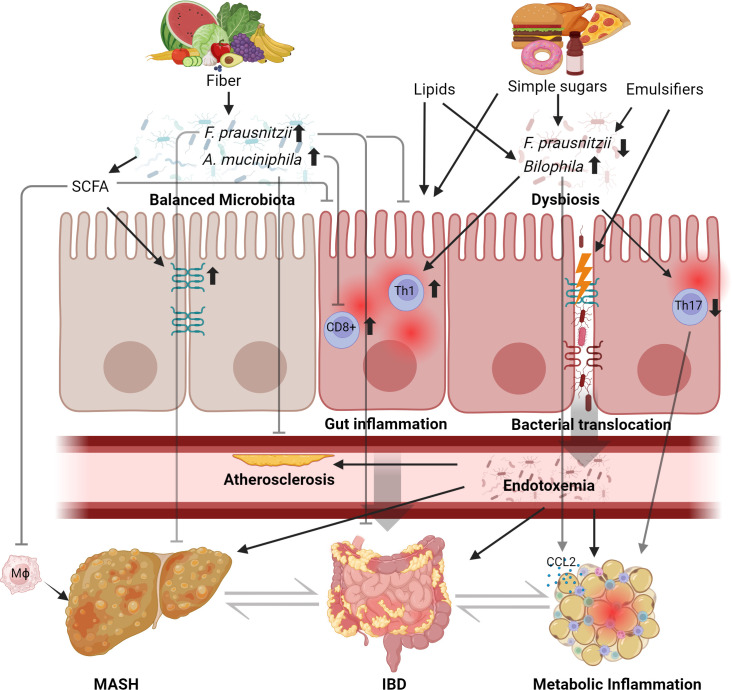Figure 2.
Mechanisms of diet-induced metabolic inflammation in mice. Studies in rodents demonstrated that dietary patterns and perturbation of the commensal microbiota affect susceptibility to gut inflammation and metabolic diseases, in humans exemplified by inflammatory bowel disease (IBD) and metabolic dsyfunction-associated steatohepatitis (MASH). A healthy diet, for example, a plant-based diet rich in fibres, supports the growth of arguably beneficial commensals such as Faecalibacterium prausnitzii and other commensals that produce short-chain fatty acids (SCFA).180 The diet and microbial commensalism may promote health or disease by modulation of the immune system. For example, liver injury and insulin resistance decreased in high-fat diet-fed mice supplemented with F. prausnitzii 181 and F. prausnitzii attenuated experimental colitis.182 Microbial SCFA protects against experimental liver disease and macrophage infiltration,183 increases gut barrier function184 and ameliorates experimental gut inflammation .185 Similarly, supplementation of Akkermansia muciniphila (which vanishes in Western microbiomes) attenuates endotoxaemia-induced metabolic inflammation and atherosclerosis186 and ameliorates colitis severity by preventing the infiltration of CD8+ T cells.187 By contrast, a Western diet containing, for example, dietary emulsifiers, simple carbohydrates (sugar) and long-chain fatty acids and cholesterol (lipids) may worsen intestinal inflammation and promote metabolic disorders,76 in part by alteration and function of the commensal gut microbiota.71 188 189 For example, a Western diet perturbs gut barrier dysfunction and evokes endotoxaemia fuelling metabolic inflammation in and beyond the gut of mice.186 190 IBD, inflammatory bowel disease.

